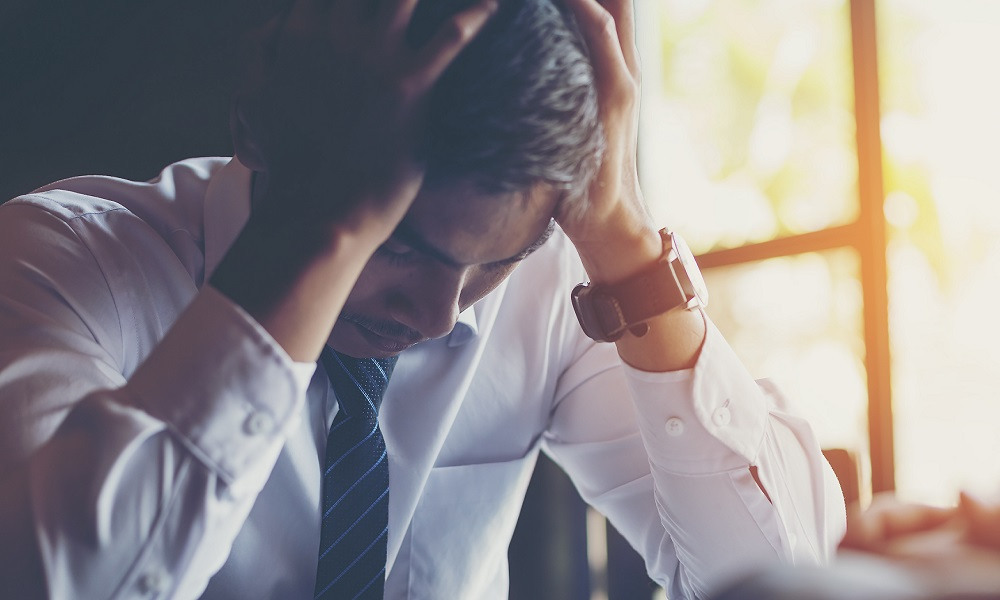Australia's school principals are overwhelmed by the amount of work; having great difficulty sleeping; and are experiencing high rates of depressive symptoms, according to a new survey released today.
The Australian Principal Occupational Health, Safety and Wellbeing Survey also found one in three principals was physically attacked and that almost half (45 per cent) were threatened with violence in 2018, compared with 38 per cent in 2011.
The survey monitors school principals' and deputy or assistant principals' health and wellbeing annually. Since it first began in 2011, data has been collected from about 50 per cent of Australia's 10 000 principals.
Associate Professor Philip Riley from Australian Catholic University's Institute of Positive Psychology and Education is the survey's chief investigator. He says that the 2018 results show that our nation builders are under attack.
‘Consequently, fewer people are willing to step into the role,' he says. ‘At a time when 70 per cent of school leaders will reach retirement age within 2-3 years, we are ignoring a looming national crisis.'
Participants in the 2018 study
The 2365 participants in the 2018 study came from government, Catholic and independent schools across the country. The majority (58.5 per cent) work in primary schools, while 26.3 per cent were from secondary, 13.3 per cent were from Kinder/Primary-Year 12, 1 per cent from Early Childhood and 1 per cent were from Special Schools. Ages of participants ranged from 26 to 81 years.
By taking part in the survey, each participant received a comprehensive, individual report from their own survey responses. The principals and deputy or assistant principals who completed the survey received interactive feedback through a dedicated secure website, affording them instant health and wellbeing check-ups tailored to their specific work context.
Results from the 2018 study
Offensive behaviour
Instances of physical violence towards principals jumped from 27 per cent in 2011 to 37 per cent in 2018. Female school leaders are most at risk of physical violence with 40 per cent experiencing violence compared to 32 per cent of male school leaders.
Overall, this means that Australian school leaders experience actual physical violence 9.3 times the rate of the general population.
‘Australia's school leaders experience a far higher rate of offensive behaviour at work than the general population,' Riley says. ‘The steadily increasing levels of offensive behaviour in schools of all types is a disgrace and it needs to stop.'
Work hours
While the standard working week in Australia is an average of 38 hours, 53 per cent of principals work more than 56 hours per week during the school term, while 24 per cent work more than 61-65 hours per week. During school holidays, 40 per cent of principals worked more than 25 hours per week.
‘The survey found an overwhelming 99.7 per cent of principals worked hours far beyond those recommended for positive mental and physical health,' the report reads.
Sources of stress
The survey found that the quantity of work and the lack of time to focus on teaching and learning were the two greatest sources of principals' stress. Teacher shortages and managing the mental health of staff and students were two issues indentified by principals.
The study notes that one in three school leaders was identified as so distressed that their physical and mental health were seriously at risk.
‘When compared to the general population, principals report 1.5 times higher job demands, 1.6 times higher levels of burnout, 1.7 times higher stress symptoms, 2.2 times more difficulty sleeping, 1.3 times negative physical symptoms and 1.3 times more depressive symptoms,' the report reads.
Recommendations
The report outlines several key recommendations to improve working conditions for school leaders. According to Riley, one way would be to have Australia adopt a whole-of-government approach to education.
‘This would mean the federal government, states and territories combine to oversee a single education budget. The funding agreement should be bipartisan and a transparent mechanism which is simple to understand,' he says.
What employers can do
The report recommends that employers take the moral choice of reducing job demands for principals, or increase resources to cope with increased demands. Furthermore, it recommends employers leave the mechanisms for producing the best educators to the educators. It is believed both of these things will increase social capital.
What schools can do
Schools are recommended to increase their internal social capital by studying schools that have already achieved high levels of social capital in spite of the current conditions. The report says that rapid dissemination of how they have achieved this will contribute to significant improvement in schools with low levels of social capital, but reminds leaders that each school needs to do this in relation to their resources and particular contexts.
What educators can do
Several recommendations are made to individual school leaders to look after their own health and wellbeing. The report recommends that school leaders:
- Increase personal capital (social, human and decisional).
- Respectfully speak back when faced with ‘moral harassment'.
- Ensure your passions are harmonious. For example, love your work but do not let it dominate your life or become obsessive about it.
- Take responsibility for your personal work-life balance.
What the community can do
Finally, the report suggests that the wider community has a role to play in improving conditions for school leaders. It suggests that the community actively supports its local school and works to stop all offensive behaviour directed at school leaders.
‘This is beyond debate. It simply must stop,' the report reads. ‘The real issue is how to achieve this outcome. The steadily increasing levels of offensive behaviour across the country in schools of all types should give us pause.
‘But this is not just occurring in schools, with increases noted in all frontline professions and domestic violence rates that we should be nationally ashamed about. Australia needs to have an adult conversation about the root causes of this and set about addressing them at every level of society.'
References
Riley, P. (2019). The Australian Principal Occupational Health, Safety and Wellbeing Survey: 2018 Data.
As a school leader, do you regularly set time aside to focus on your own health and wellbeing? How could you incorporate this into your daily or weekly routine?
The full survey and its 15 detailed recommendations are available here (14.9MB).


